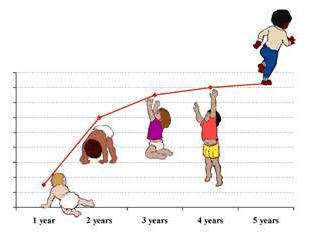This is what parents told us about home safety
ANTICIPATE the way your child behaves and develops.

Children can surprise parents as they learn and develop.
“I was surprised …. I didn’t think he’d be able to reach…. we know not to leave things on the edge of the worktop…he was obviously determined and he was stretching as far as he possibly could…..it was a case of not realising how much he’d grown…”
Keep one step ahead by making sure dangers are out of reach and supervising your child.
“It’s just being on your guard at all times; it doesn’t matter if you think your cleaning stuff …is in a safe place out of his reach cos he will still get to it. It’s knowing where they are. Listen out for the silence - when it goes silent you know they are up to something.”
Know your child. How active are they? Do they have extra needs?
“She is a bit ‘touchy’ so we try to keep away all things that we perceive to be dangerous… keep these chairs away from her… not to put things on top of the desk for her to be able to reach… bottles, medicines, cooking utensils, irons and almost everything she is likely to touch ….she is very, very active.”
Will they copy you or an older brother or sister?
“…just not doing things in front of her…like I never plug and unplug things in front of her... obviously they are going to do what you are doing so I tend to avoid her seeing me.”
TEACH your child about hazards and safety rules
What you told us on questionnaires showed this can make a difference. The parents we interviewed also talked about the importance of teaching children safety rules.
“If you don’t teach them then they are going to learn the hard way, aren’t they?”
You can do this in a simple way from an early age and give a more detailed explanation as your child gets older.
“As I say teaching as early as you can…”
“As they get older…. you have to explain in depth as to why things are dangerous and why you can’t do that so they know…
Use safety equiptment
Although knowing and supervising your child, as well as anticipating dangers are important, using safety equipment can prevent injuries.
“When they are younger obviously …. because you can’t teach them rules but you try ….but you need the equipment as well”
“You can't be everywhere all the time”